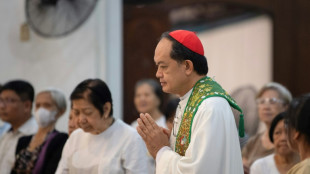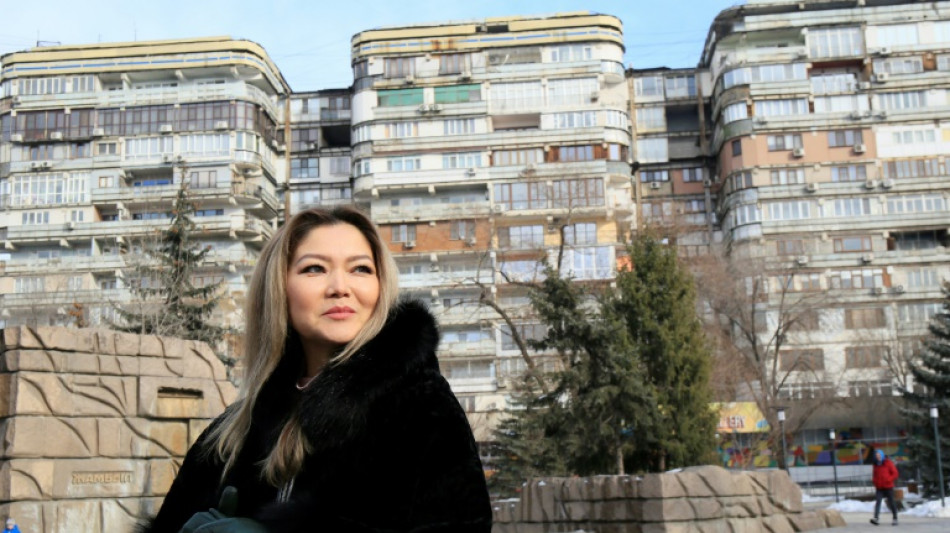
-
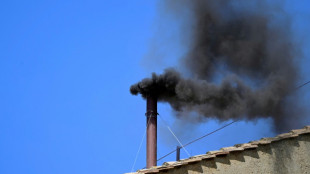 Cardinals to vote anew for pope after second black smoke
Cardinals to vote anew for pope after second black smoke
-
Arsenal fall short again as striker woes haunt Arteta

-
 Inter turn attentions to fading Serie A title defence after Barca triumph
Inter turn attentions to fading Serie A title defence after Barca triumph
-
Elk could return to UK after 3,000 years as plan wins funding
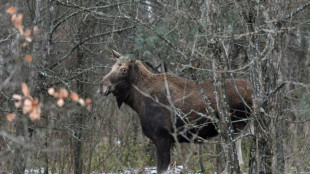
-
 Trump announces 'full and comprehensive' trade deal with UK
Trump announces 'full and comprehensive' trade deal with UK
-
Putin and Xi rail against West as Ukraine reports truce violations

-
 England's Itoje to captain British and Irish Lions rugby team in Australia
England's Itoje to captain British and Irish Lions rugby team in Australia
-
Gates Foundation to spend $200 bn through 2045 when it will shut down
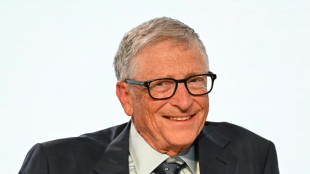
-
 Swiatek makes fast start at Italian Open
Swiatek makes fast start at Italian Open
-
Israel's aid blockade to Gaza 'unacceptable': Red Cross
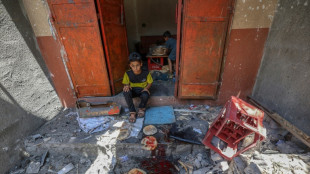
-
 EU threatens to target US cars, planes if Trump tariff talks fail
EU threatens to target US cars, planes if Trump tariff talks fail
-
Amnesty says UAE supplying Sudan paramilitaries with Chinese weapons
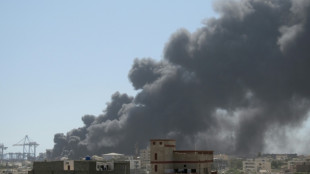
-
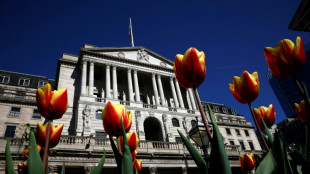 Bank of England cuts interest rate as US tariffs hit economy
Bank of England cuts interest rate as US tariffs hit economy
-
Germany slams Russian 'lies' on Ukraine in WWII commemoration
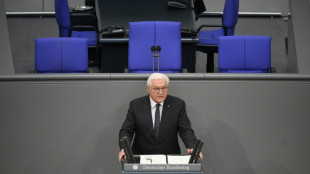
-
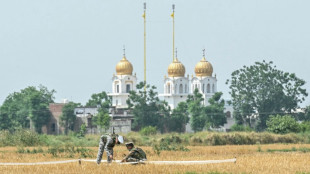 Pakistan and India accuse each other of waves of drone attacks
Pakistan and India accuse each other of waves of drone attacks
-
Thrilling PSG home in on elusive Champions League trophy

-
 Wolf protection downgrade gets green light in EU
Wolf protection downgrade gets green light in EU
-
Fijian Olympic medallist Raisuqe killed after car hit by train

-
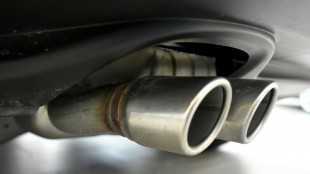 EU parliament backs emissions reprieve for carmakers
EU parliament backs emissions reprieve for carmakers
-
Trump announces trade agreement with UK

-
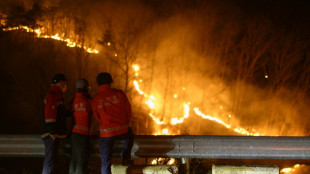 Global temperatures stuck at near-record highs in April: EU monitor
Global temperatures stuck at near-record highs in April: EU monitor
-
Stocks rise as Trump signals US-UK 'trade deal'

-
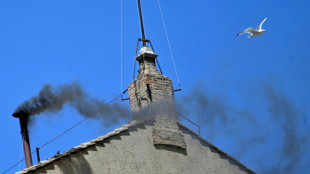 Second black smoke, cardinals to vote again for new pope
Second black smoke, cardinals to vote again for new pope
-
Screams and shattered glass under Pakistan bombardment
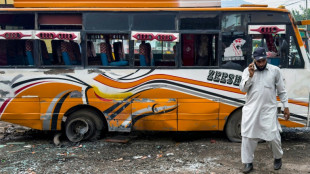
-
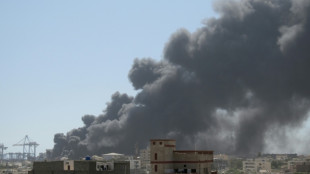 Drone strikes spark civilian exodus from army-controlled Sudan aid hub
Drone strikes spark civilian exodus from army-controlled Sudan aid hub
-
First responders in Gaza run out of supplies
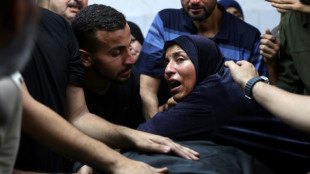
-
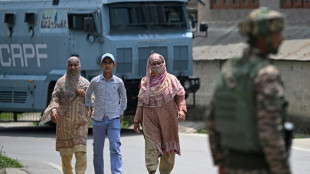 Pakistan shoots down 25 Indian drones near military installations
Pakistan shoots down 25 Indian drones near military installations
-
Xi meets Putin in Moscow as Ukraine reports truce violations
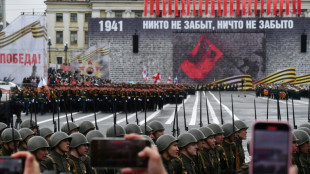
-
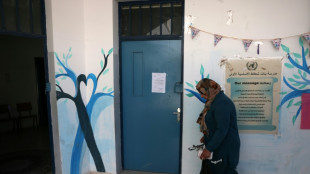 Israel forces close UN schools in annexed east Jerusalem
Israel forces close UN schools in annexed east Jerusalem
-
Trump to announce 'trade deal' with UK

-
 'Jumbo': the animated Indonesian film smashing records
'Jumbo': the animated Indonesian film smashing records
-
Stocks rise on trade hopes, London boosted by reports of deal

-
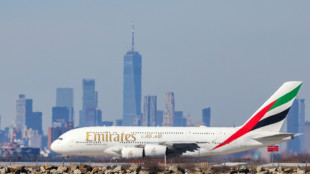 Emirates airline group announces record $6.2 bn gross profit
Emirates airline group announces record $6.2 bn gross profit
-
Accused mushroom murderer sent children to movies before deadly meal

-
 Nintendo forecasts 15 million Switch 2 sales in 2025-26
Nintendo forecasts 15 million Switch 2 sales in 2025-26
-
Australian Greens chief loses his own seat
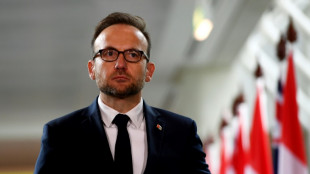
-
 Toyota cites tariffs as it forecasts 35% net profit drop
Toyota cites tariffs as it forecasts 35% net profit drop
-
Wolf protection downgrade set for green light in EU

-
 Global cult following keeps Le Creuset simmering
Global cult following keeps Le Creuset simmering
-
Austria's JJ makes operatic pop soar at Eurovision

-
 Toyota cites tariffs as it forecasts 35% drop in 2025-26 net profit
Toyota cites tariffs as it forecasts 35% drop in 2025-26 net profit
-
Depoliticising Eurovision 'impossible', experts say

-
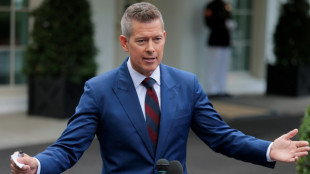 Trump official to unveil ambitious US air traffic control upgrade
Trump official to unveil ambitious US air traffic control upgrade
-
India and Pakistan trade fire after deadly escalation
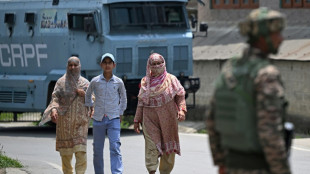
-
 Knicks rally again to take 2-0 lead over Celtics, Thunder roar back
Knicks rally again to take 2-0 lead over Celtics, Thunder roar back
-
What the shell: scientists marvel as NZ snail lays egg from neck
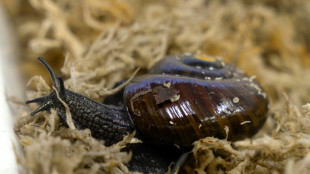
-
 Eurovision week's opening parade set to start the party
Eurovision week's opening parade set to start the party
-
Trump to announce trade deal with UK on Thursday: US media

-
 Dhoni says 'nothing to decide now' over retirement plans
Dhoni says 'nothing to decide now' over retirement plans
-
A bitter return for Iraqis kicked out of Europe
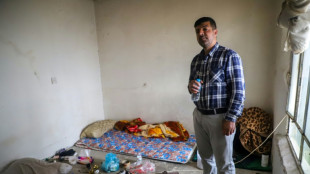

Turkey tragedy jolts quake-prone Central Asia
When a devastating earthquake and aftershocks struck Turkey and Syria this month, Klara Imangalieva -- who lives in the Central Asian country of Kazakhstan -- realised she had to move.
"We are also in danger," said Imangalieva, a resident of Almaty, Kazakhstan's largest city dominated by the snow-capped Tian Shan mountains.
"I'm looking to move into a single-storey house to at least have a chance of surviving in the event of an earthquake," said Imangalieva, who lives on the ninth floor of a high-rise building.
Almaty, which has a population of around two million people, sits in a high seismic hazard zone in southeastern Kazakhstan.
Small tremors are fairly common in the country although there has not been a major quake in living memory.
Three historic earthquakes hit Almaty -- then known as Verny -- more than a century ago in 1887, 1889 and 1911. Each time the city was heavily destroyed and had to be rebuilt.
The horrific earthquake and aftershocks that shook Turkey and Syria in early February, killing more than 45,000 people, stirred fears about a possible new disaster in the former Soviet country and drew fresh attention to its past and current building practices.
Architect Almas Ordabayev says it is unclear how many buildings in Almaty would be able to withstand powerful shocks, singling out early Soviet-era houses as a particular concern.
"All the buildings built before the end of the 1950s which have not been reinforced will not survive an earthquake like the one in Turkey", said 84-year-old Ordabayev.
Ordabayev also raised concern about the construction practices in the post-Soviet era.
"Only a strong earthquake will reveal what will happen to buildings built in the 1990s by corrupt and criminal companies," he said.
- 'Lesson to authorities' -
Ordabayev expressed hope that the catastrophe in Turkey and Syria could serve as a cautionary tale.
The scale of the destruction has ignited fury in Turkey, which has multiple fault lines and a history of major tremors, over poor construction standards.
"I hope that the earthquake in Turkey will serve as a lesson to our authorities and builders," Ordabayev said.
According to estimates, more than five million people in Kazakhstan live in a high seismic zone covering over 11 percent of the country's territory.
Deputy head of Almaty's Institute of Seismology, Nursaren Uzbekov, said around 40,000 earthquakes had been recorded in the country over the past five years.
On average, between nine to 15 quakes can be felt each year, he added.
Uzbekov's institute, founded in 1976, studies vibrations deep inside the Earth and the behaviour of animals such as snakes, birds, rabbits and fish.
A network of seismic stations monitors real-time ground motion in Kazakhstan and neighbouring countries.
Grigory Kochkarov works at one such station perched in the mountains overlooking Almaty.
"If there is an earthquake, we immediately see it on the screen, receive an audible signal and in ten minutes maximum, we transmit the information", he told AFP.
The station's seismographs are sensitive to minute vibrations and can detect activity occurring 3,000 kilometres (1,860 miles) away, he said.
He demonstrated long sheets of white paper -- some of the seismograms recorded by the observatory date back to the 1930s.
Kochkarov then opened a heavy door leading to a side chamber hewn out of the earth. Inside there was a long-corridor -- where "normally, nobody goes" -- containing sensitive measuring equipment.
But experts say that the energy-rich country does not have enough seismic stations and the majority of seismographs date back to the Soviet-era.
- Quake fears -
Other countries in former Soviet Central Asia also fear that a destructive earthquake could wreak havoc sooner or later.
After the earthquakes in Turkey and Syria, authorities in mountainous Kyrgyzstan pledged to assess the seismic resilience of high-rise buildings.
In Uzbekistan, an earthquake destroyed much of the capital Tashkent in 1966, and Soviet authorities had to rebuild the city.
Pensioner Nuriddin Ibragimov said he was 13 when the tragedy struck.
"Tashkent was in ruins," he said, noting that the Soviet authorities covered up the real death toll.
Ashgabat, the capital of Turkmenistan, was razed to the ground in 1948 in one of the deadliest quakes of the 20th century. The disaster claimed an estimated 100,000 lives.
Today Turkmenistan, one of the most secretive countries in the world, takes "necessary measures to preserve the structural integrity of buildings", a government source told AFP.
The lake is located behind a natural dam deep in the Pamir mountains, and if the dam is breached, the consequences will be catastrophic.
H.E.Young--AMWN
